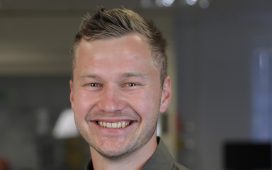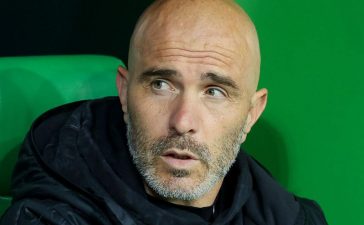
Mark Moeremans, managing director of The Journey
“Entrepreneurship and startup building are core and central to opportunity in this country. Historically and repeatedly, there are large groups of people that are left out of that system. In 2022, less than 2% of venture capital went to diverse founders, and that had declined from the year before. So it’s not that things are necessarily getting better.”
Those were comments made by Mark Moeremans, managing director of The Journey, in a recent interview. To address the issue that he spoke about, Moeremans and healthcare entrepreneur and investor Justin Bayless launched The Journey last week as a venture studio to create new healthcare startups with diverse founders.
The Journey, based in Phoenix, operates as a 501c3 not-for-profit entity. The venture studio has already started to identify and recruit entrepreneurs from underrepresented backgrounds across the country. The goal is for these entrepreneurs to one day become co-founders and CEOs of the startups born out of The Journey.
Moeremans said The Journey thinks about its process in terms of four stages: ideation, validation, incorporation and commercialization.
For the ideation piece, The Journey works with entrepreneurs to examine where capital is moving in the healthcare space, determine gaps in the marketplace and identify pain points that haven’t been innovated yet.
Aspiring entrepreneurs who have ideas for startups go through an extensive interview process. If they’re accepted into a cohort at The Journey, they come to Phoenix for a six-month validation program.
During this program, The Journey provides entrepreneurs with hands-on support from healthcare industry experts. The venture studio is currently building its board so entrepreneurs have more personnel to turn to for guidance. The validation phase allows these aspiring founders to do things like conduct testing, prototype their products, explore customer engagement strategies and determine scalability, Moeremans said.
“This chapter also allows the cohort to work through some of the more sensitive issues and unique obstacles that diverse entrepreneurs face. What’s what’s like fundraising when you’re the only minority in the room? What’s it like fundraising when you came from poverty and you’re not used to asking people for money? What does it mean to hire and manage people that might be older than you that don’t look like you?” he explained.
After the validation program is finished, The Journey will decide which concepts get the green light to become startups — this is the incorporation phase.
During this stage, The Journey will become a co-founder for the new startups. The venture studio will name participating entrepreneurs as the other co-founders, as well as CEOs, of said companies.
“Not all of the ideas and founders will get the green light to move on,” Moeremans declared. “That will be based on business sustainability, viability and scalability. That green light moment will also determine whether or not the startups continue to receive additional funding and support from the studio.”
The Journey will then give the selected startups access to coaching networks and resources so they can commercialize. Should a startup become successful and profitable, it will share upside with The Journey because the venture studio is an investor and co-founder in each company born out of its cohorts.
The venture studio plans to launch the validation phase for its first cohort toward the end of this year. The Journey expects its cohorts to include two to six founders, Moeremans said.
The types of companies that The Journey is looking to create are digital health startups with services or platforms designed to improve operations for providers and payers, Moeremans pointed out. The venture studio will not create companies that make medical devices or other products that require FDA approval. It also isn’t interested in deep research and development or drug discovery, he said.
Photo: The Journey











